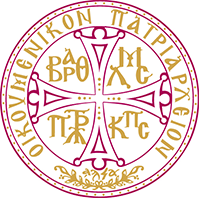There is a profound relationship between the divine Creator and the natural creation – worshipping the former and venerating the latter. The future of this planet is of critical importance for the kingdom of heaven. Our understanding of salvation is not other-worldly, but involves the transfiguration of this world in light of the heavenly kingdom. This is why, over the last two decades, the Orthodox Church has prayed throughout the world for the protection and preservation of the natural environment. It is critical that the intimate connection between poverty and the natural environment be recognized if problems of either economy or ecology are to be addressed. The natural environment cannot be separated from personal piety and spirituality.
Climate change and environmental pollution affect everyone. While the data may be variously debated, the situation is clearly unsettling. To take but one example: dramatic increases of greenhouse gases in our atmosphere — largely due to fossil fuel burning — are causing global warming and in turn leading to melting ice caps, rising sea levels, the spread of disease, drought and famine. The European heat-wave of 2003 could be unusually cool by 2060, while the 150,000 people that the World Health Organisation conservatively estimates are already dying annually due to climate change will be but a fraction of the actual number.
It is painfully evident that our response to the scientific testimony has been generally reluctant and gravely inadequate. Unless we take radical and immediate measures to reduce emissions stemming from unsustainable — in fact unjustifiable, if not simply unjust — excesses in the demands of our lifestyle, the impact will be both alarming and imminent.
Religious leaders throughout the world recognize that climate change is much more than an issue of environmental preservation. Insofar as human-induced, it is a profoundly moral and spiritual problem. To persist in the current path of ecological destruction is not only folly. It is no less than suicidal, jeopardizing the diversity of the very earth that we inhabit, enjoy and share. It has rightly been described on several occasions by His All Holiness Ecumenical Patriarch Bartholomew as a sin against God and creation. After all, a handful of affluent nations account for two thirds of global GDP and half of all global carbon dioxide emissions.
Ecological degradation also constitutes a matter of social and economic justice. For those who will most directly and severely be affected by climate change will be the poorer and more vulnerable nations (what Christian Scriptures refer to as our “neighbour”) as well as the younger and future generations (the world of our children, and of our children’s children). Those of us living in more affluent nations either consume or else corrupt far too much of the earth’s resources.
There is a close link between the economy of the poor and the ecology of the planet. Conservation and compassion are intimately connected. The web of life is a sacred gift of God — ever so precious and ever so delicate. We must serve our neighbour and preserve our world with both humility and generosity, in a perspective of frugality and solidarity alike. After the great flood, God pledged never again to destroy the world: “As long as the earth endures, seedtime and harvest, cold and heat, summer and winter, day and night, shall not cease” (Genesis 8.22). How tragic, however, it would be if we were the ones responsible for their destruction. The footprint that we leave on our world must be lighter, much lighter.
Africa is the continent least responsible for global warming, yet bearing the most detrimental consequences, while also being the least equipped to cope with the changes. Harvest cycles in Ethiopia and other parts of eastern and southern Africa are shortening, leading to further food insecurity for the world’s poorest people. Elevated temperatures create incalculable increase in the range of vector-borne diseases and lack of clean water. Populations affected by fatal diseases, such as malaria, schistosomiasis, dengue fever and cholera, are rising dramatically. Even a conservative estimate indicates the number of people impacted by flooding could increase from 1 million (in 1990) to 70 million (by as early as 2080).
Faith communities must undoubtedly first put their own houses in order; their adherents must embrace the urgency of the issue. This process has already begun throughout the world, although it must be expanded and intensified. Religions realize the primacy of the need for a change deep within people’s hearts. They are also emphasizing the connection between spiritual commitment and moral ecological practice. Faith communities are well-placed to take a long-term view of the world as God’s creation. In theological jargon, that is called “eschatology.” Moreover, we have been taught that we are judged on the choices we make. Our virtue can never be assessed in isolation from others, but is always measured in solidarity with the most vulnerable. Yet churches, mosques, synagogues, temples, and other houses of worship consume a fraction of energy compared to manufacturing industries, modern technologies, and commercial companies.
Breaking the vicious circle of economic stagnation and ecological degradation is a choice, with which we are uniquely endowed at this crucial moment in the history of our planet. The destructive consequences of indifference and inaction are ever more apparent today. At the same time, the constructive solutions to mitigate global warming are increasingly merging. Therefore, government, businesses, and religious institutions are actively pursuing cooperation, converging in commitment and compelling people to act. Only together – in a genuine spirit of dialogue and cooperation – can a problem of this magnitude be addressed and resolved. The responsibility as well as the response is collective. We know how to prevent such rapid climate change. We now need a powerful network of diverse yet connected leaders committed to empowering individual and commercial action.
In the Orthodox tradition, the connection between ecology and spirituality is especially tangible in the practise of asceticism, and indeed most notably in the act of fasting. The ascetic way is primarily a way of liberation. And the ascetic is the person who is free, uncontrolled by attitudes that abuse the world; uncompelled by ways that use the world; characterized by self-control, by self-restraint, and by the ability to say “no” or “enough.” Asceticism, then, aims at refinement, not detachment or destruction. Its goal is moderation, not repression. Its content is positive, not negative: it looks to service, not selfishness; to reconciliation, not renunciation or escape. Without asceticism, none of us is authentically human.
Let us, then, examine the significance of the ascetic practice of fasting. We Orthodox fast from all dairy and meat products for half of the entire year, almost as if in an effort to reconcile one half of the year with the other, secular time with the time of the kingdom. To fast is:
•not to deny the world, but to affirm the world, together with the body, as well as the material creation;
•to remember the hunger of others, identifying ourselves with—and not isolating ourselves from—the rest of the world;
•to feel the hunger of creation itself for restoration and transfiguration;
•to hunger for God, transforming the act of eating into nothing less than a sacrament;
•to remember that we live not “by bread alone” (Matt. 4:4), that there is a spiritual dimension to our life;
•to feast along with the entire world; for we Orthodox fast together, never alone or at whim.
To fast is to acknowledge that all of this world, “the earth, is the Lord’s, and all the fullness thereof” (Ps. 23:1). It is to affirm that the material creation is not under our control; it is not to be exploited selfishly, but is to be returned in thanks to God, restored in communion with God.
Therefore, to fast is to learn to give, and not simply to give up. It is not to deny, but in fact to offer, to learn to share, to connect with the natural world. It is beginning to break down barriers with my neighbour and my world, recognizing in others faces, icons; and in the earth the face itself of God. Anyone who does not love trees does not love people; anyone who does not love trees does not love God.
To fast, then, is to love; it is to see more clearly, to restore the primal vision of creation, the original beauty of the world. To fast is to move away from what I want, to what the world needs. It is to be liberated from greed, control, and compulsion. It is to free creation itself from fear and destruction. Fasting is to value everything for itself, and not simply for ourselves. It is to regain a sense of wonder, to be filled with a sense of goodness, of God-liness. It is to see all things in God, and God in all things. The discipline of fasting is the necessary corrective for our culture of wasting. Letting go is the critical balance for our controlling; communion is the alternative for our consumption; and sharing is the only appropriate healing of the scarring that we have left on the body of our world, as well as on humanity as the body of God.
This conference is a golden opportunity for all of us to recognize the unique role of every individual and of every organization, in order that we may respect the more vulnerable in this situation, and in order that we may be prepared to assume responsibility for an issue of critical significance and global urgency.
May we be inspired by grace and justice, guided by reason and responsibility, and filled with selflessness and compassion.



